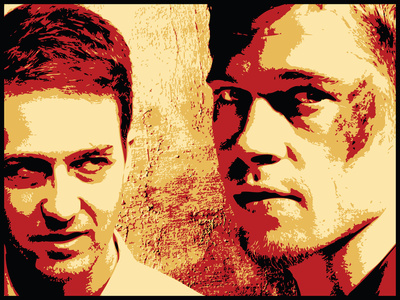Before there was Fight Club, Edgar Allan Poe was publishing multiple stories featuring main characters with alter egos. The trope of physically representing different aspects of the mind is by no means new, and certainly did not originate with Poe. However, he definitely seems to express old tropes and genres with a special kind of style. As numerous other Edgar Allan Poe critics have mentioned before, Poe loves to fixate on certain themes within his writings. In several tales, he regales us with allegorical tales of psychic civil war between passion and reason, usually resulting in the elimination of one of these parts of the psyche by the tale’s conclusion (he is just all about murder). This theme of the conflict between passion/inclinations/baser desires and reason/morality/intellect is by no means unique, but certainly a strife that resonates with readers. Beyond wanting to write appealing stories (Poe has been called a hack by some, I say give him a break, the man needed to make a living), this conflict aligns itself with Poe’s conception of poetry and literature. The primary focus of poetry for him is Beauty (elaborated on in “The Poetic Principle”), not passion or instruction and so any character who becomes too focussed on bodily desires, as William Wilson with his lust for the duchess must be eliminated. It also doesn’t hurt that Poe’s writing is super brutal: if he was alive today he would definitely be in a metal band. I want to look at three of his tales in particular that grapple with the fight between passion and reason: “William Wilson”, “The Black Cat”, and “The Cask of Amontillado”.
-
Subscribe
Subscribed
Already have a WordPress.com account? Log in now.

